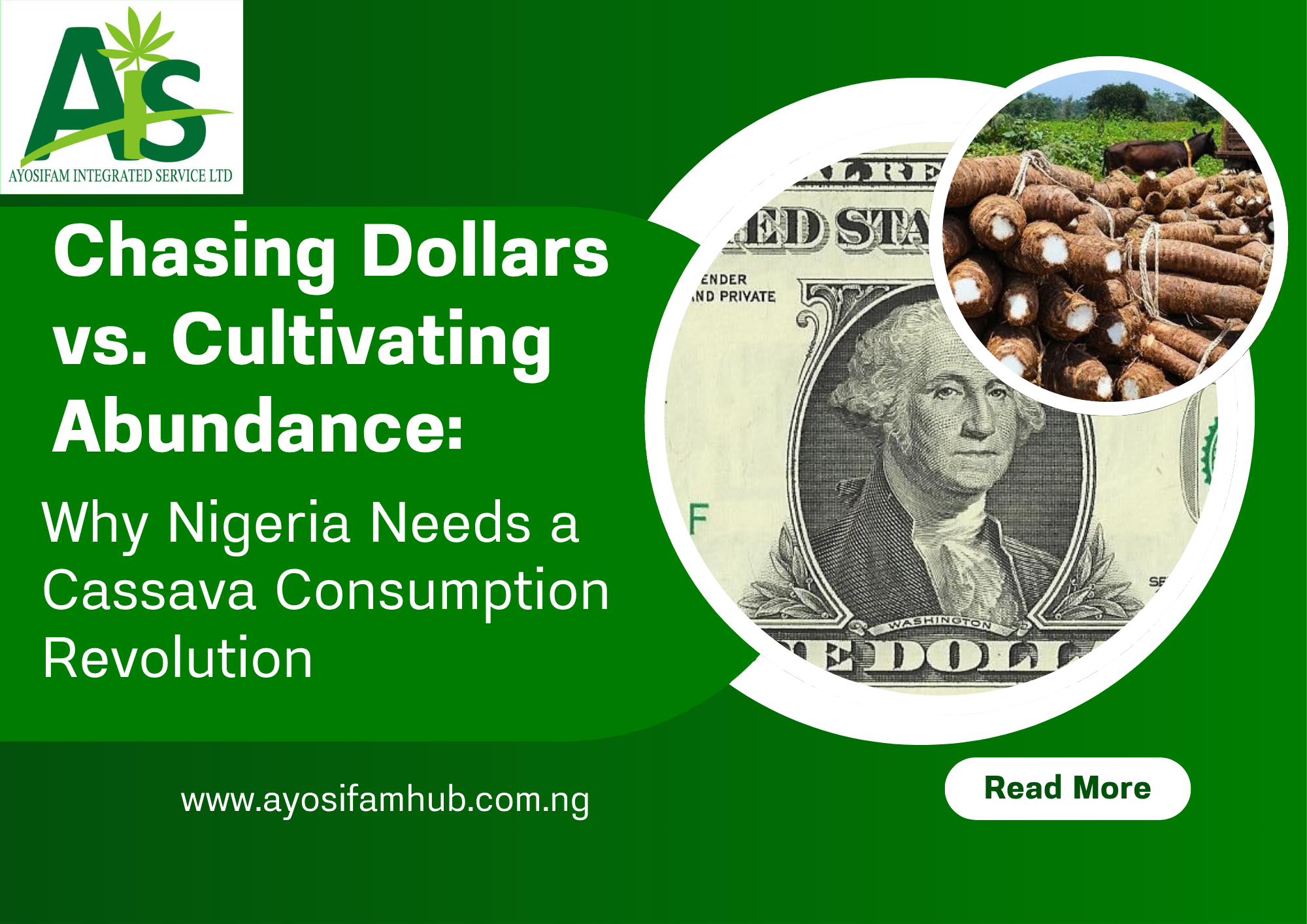We hear it all the time: “Diversify the economy!” “Boost exports!” And while these are noble goals, there’s a growing whisper among us, a truth becoming increasingly loud: chasing the dollar alone won’t solve our fundamental market problems. Especially not when we have an goldmine literally beneath our feet, waiting to be fully tapped.
I’m talking, of course, about cassava.
For too long, our focus in agriculture has leaned heavily towards supporting farmers with inputs and fertilizers, often with an eye on export markets. The logic is clear: sell abroad, earn dollars, strengthen the economy. But here’s the rub – when we prioritize foreign markets for our abundant produce, we inadvertently create a scarcity at home. Our farmers, understandably, want the best price for their hard work. If that price is denominated in dollars from exports, who can blame them for chasing it?
The unintended consequence, however, is a vicious cycle: less produce available locally, higher food prices for the average Nigerian family, and ultimately, a deepening of poverty and hunger right here in our own communities. We end up supporting farmers to produce for others, while our own tables go wanting or demand exorbitant prices.
This isn’t just about farming; it’s about dignity, sustainability, and self-reliance.
Imagine a Nigeria where cassava isn’t just a subsistence crop, but a celebrated, integral part of our daily diet across all segments of society. Think about it:
- Hotels and Restaurants: What if every hotel in Lagos, every restaurant in Abuja, and every eatery proudly featured innovative and delicious cassava-based dishes on their menus? Not just garri and fufu (though those are kings!), but cassava bread, cassava pasta, cassava-based desserts, and even new twists on traditional meals.
- Government Kitchens and Institutions: Imagine our schools, hospitals, and even military barracks incorporating a certain percentage of locally sourced cassava products into their daily meals. This isn’t just about nutrition; it’s about creating a consistent, massive demand that empowers our farmers directly.
- The Household Shift: With quality, affordability, and availability, more Nigerian homes would naturally gravitate towards cassava products, further solidifying its place as a dietary staple.
- This isn’t a pipe dream. It’s a proven model. Look at Ghana, for instance. While perhaps not a strict legal mandate, there’s a strong cultural and practical emphasis on incorporating local foods into their hospitality sector. It’s simply part of their culinary identity. Why can’t that be us?
What we desperately need is a Strong Federal Policy for Cassava Products in Daily Consumption.
This isn’t about handouts or forcing consumption. It’s about strategic market creation that:
- Guarantees Local Demand: By creating a robust and consistent local market, our smallholder farmers will have a reliable outlet for their produce, reducing their reliance on volatile export markets.
- Stabilizes Prices: Increased local availability naturally leads to more stable and affordable prices for consumers, directly combating food inflation and hunger.
- Fosters Value Addition: A strong local market encourages innovation in cassava processing. This means more jobs in agro-processing, diversified products, and higher earnings for farmers as their raw materials are transformed into value-added goods.
- Creates Livelihoods, Not Just Income: When farmers know there’s a guaranteed market at home, they can plan better, invest more, and build sustainable livelihoods for their families and communities. It shifts them from merely chasing external income to building a stable, internal agricultural economy.
- Strengthens Food Security: Relying on our own abundant resources for daily sustenance makes us less vulnerable to global market fluctuations and supply chain disruptions.
The truth is, we have a golden opportunity to solve a significant part of our market problems from within. Our farmers are hardworking. Our land is fertile. Our cassava is abundant. What’s missing is a deliberate, federal-level push that prioritizes local consumption, creating a vibrant internal market that benefits everyone. This is the kind of transformation AyosifamHub believes is crucial for Nigeria’s agricultural future.
Let’s stop chasing the dollar at the expense of our own people. Let’s cultivate our abundance, empower our farmers, and feed our nation with what we have in such glorious plenty. The time for a cassava consumption revolution is now.




